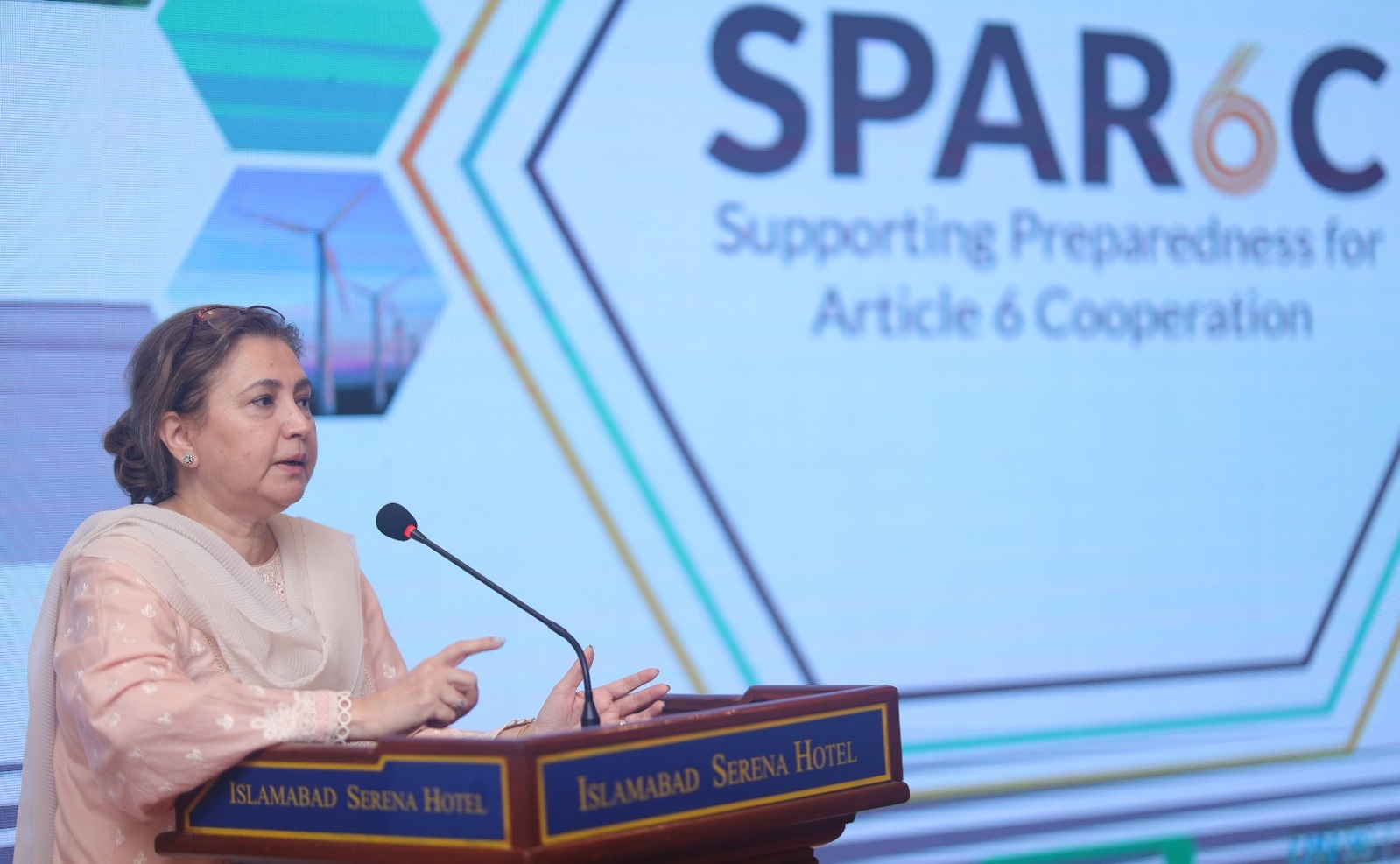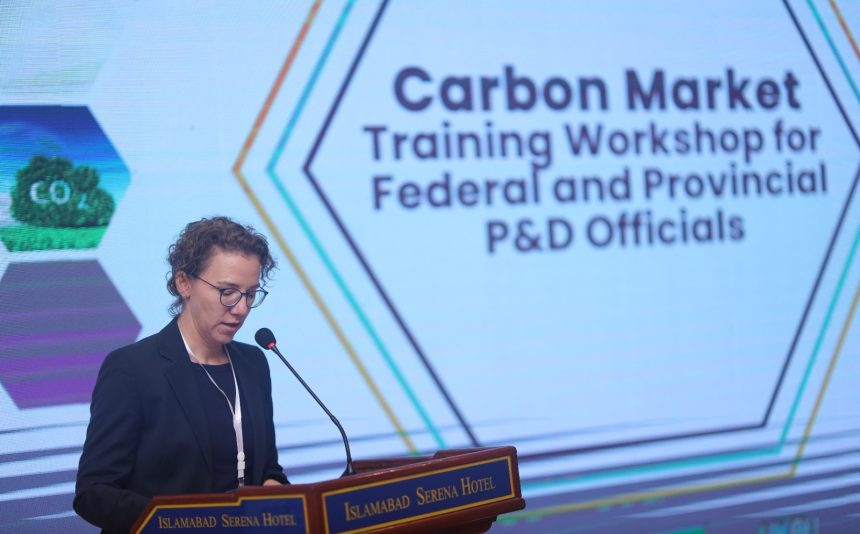As signatories to the Paris Agreement have to fulfill their pledges in their Nationally Determined Contributions by 2030, it is imperative that all policy and financing instruments and international opportunities be utilized effectively and timely. Pakistan has set an ambitious target of an overall 50% reduction of its projected emissions by 2030.
Under the Kyoto Protocol, Clean Development Mechanism is touted as a missed opportunity as Pakistan started ‘too’ late; leading to sharp price and demand declines in carbon credits, and a stop of new project approval after 2020. Almost 8000 registered projects showcased effectiveness of carbon markets in mobilizing investments in mitigation activities and generate carbon dioxide equivalent of emission reductions.
Under Article 6 of the Paris Agreement, a new generation of carbon market was created, for voluntary international cooperation and carbon credit generation and transaction. Pakistan can leverage anywhere between $2 billion and $5 billion from carbon markets by 2030. In order to bolster expertise and governmental awareness towards strengthening carbon markets, the Supporting Preparedness for Article 6 Cooperation (SPAR6C) program has held seven trainings with relevant officials and potential project owners and investors since 2022.
The five-year program, funded by the German Federal Ministry for Economic Affairs and Climate Action, supports Pakistan, Colombia, Thailand, and Zambia to get ready to engage in the carbon market cooperation. The program provides policy advice support to agencies, technical assistance to identify and prepare potential mitigation activities, and capacity building for various stakeholders in partner countries.
The program is implemented by a consortium of leading organizations in carbon market expertise, including the Global Green Growth Institute, with partners Carbon Limits, GFA Consulting Group, Kommunalkredit Public Consulting and UNEP Copenhagen Climate Centre (UNEP-CCC). In collaboration with the Ministry of Climate Change and Environmental Coordination and the Ministry of Planning, Development and Special Initiatives, a two-day workshop was organized at the Serena Hotel in Islamabad.

The training brought together over 50 officials and in-charge of public investment project appraisal and approval, and interactively introduced to participants on basics and overview of carbon market, requirements for Article 6 activity implementation, formulation of strategies and rules for project approval, steps of Article 6 project designing and implementation, as well as how participants can screen the government investment project to enhance their greenhouse gas emission reductions and benefit from carbon market.
“This is a golden opportunity for all of you to learn a cutting-edge approach to PC 1-5 process and how to claim carbon credits. Very few people in Pakistan have this opportunity and if you learn this new skill you can truly be a leader and make a difference in your job,” Aisha Humera, secretary of the Ministry of Climate Change and Environmental Coordination, told the participants.
She stressed that traditional climate finance tools and resources alone cannot help Pakistan make the clean energy transition a reality and achieve its NDC targets. She exalted carbon credit as a resource for the country’s transformation and competitiveness in the global emerging green markets. First Secretary at German Embassy Janine Rohwer lauded SPAR6C to support developing countries in benefiting from the carbon market.
“I have been following SPAR6C’s work for a year and am very impressed by the work being done by project partners in Pakistan. Why do carbon markets matter to Pakistan and Germany? Carbon markets are an integral part of our commitment to climate mitigation; we prioritize this and it is part of our development program,” she told the audience.
“We are here to support Pakistan’s compliance market especially since aligning with carbon market standards will make private investment more attractive for Pakistan,” she said, and urged participants to learn how to view voluntary emissions trading as a valuable co-financing source to tackle multiple challenges in industries such as construction, transport and energy.
The training agenda kicked off with Dr Xianli Zhu, senior economist at the UNEP-CCC, presenting on carbon market and Article 6’s relevance for Pakistan and how they can be effectively integrated within the country. She stressed that the officials have a pivotal role to play in this implementation. She urged the officials to steer the public investment towards low-emission activities, and leverage private investment in greenhouse gas emission reduction activities.
Punjab’s P&D Energy chief Tariq Javed welcomed this move and noted that he looked forward to taking the knowledge acquired in these two days to more practical implementation in the next sessions. “I am happy that a cohort will be formed so that we can practice cases and use the tools that we have learned about. He said that building this expertise will be transformative on how they conceive, build, appraise and implement the projects.
Khyber Pakhtunkhwa Planning and Development Chief Secretary Afrasiyab Khattak shared that almost 50% of Pakistan’s forest cover resides in the province he represents and that the workshop has made him understand how carbon credits for mitigation through forestation can be a transformative opportunity. He noted that the Climate Financing Strategy has a missing link of carbon markets and he is looking forward to extend the knowledge shared to alter the strategy to include this untapped resource.
While the role of provincial officials in helping bring carbon credit projects to the fore was cemented, participants noted that buy-in from senior political leadership was needed as well. “In Azad Jammu Kashmir, we don’t have carbon market understanding through-out the board, which is a missed opportunity because we have a lot of potential for carbon credits within certain projects such as hydropower and forestry,” said Mehnaz Kant, senior officials of the Planning & Development Department of Azad Jammu Kashmir.
“I would suggest SPAR6C to hold such workshops for officials in decision-making authorities such as minsters so they can have a solid understanding of carbon markets and can take active steps to setting up these markets and such projects in Pakistan,” she said. The workshop concluded with surveys conducted from participants so that all feedback and recommendations can be inculcated in future interventions and workshops.












